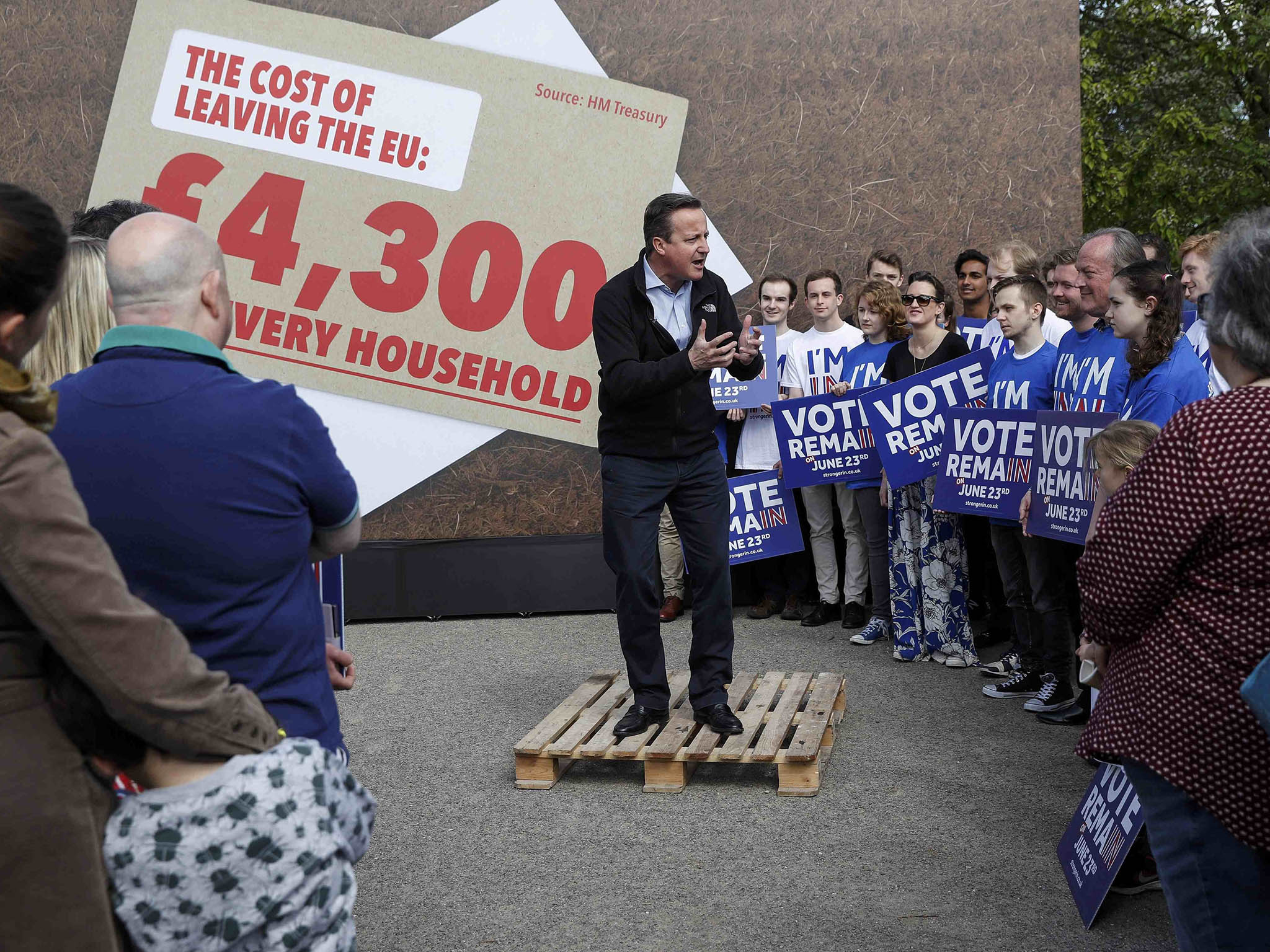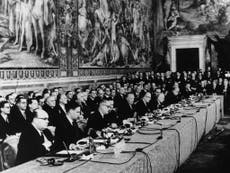After much consideration – and with a heavy heart – here's how I will vote in the EU referendum
In his final column in a three-part series, The Independent's founding editor explains how he came to make this most critical of political judgements


I cannot hide the emotional appeal that leaving the European Union has for me. That, however, is not the end of the matter.
Yesterday and the day before, in this column, I tried to say what sort of thing the EU is. I don’t like much of what it entails.
I deeply regret that it has been necessary to let the EU override the will of the Westminster Parliament. That has never happened before. I don’t like belonging to a body that was first led by France and is now dominated by Germany. Throughout our history, we have fought bloody battles to avoid being subordinate to a continental power.
Yet I cannot let these considerations alone determine how I shall cast my vote in the referendum. If continued membership of a vast single market brings quantifiable and sustainable benefits for the people of this country in terms of economic prosperity, then it may be that these advantages outweigh my concerns.
But how to make this judgement? If you listen solely to what the leaders of the two campaigns say, then you will never arrive at an answer. All you are hearing is propaganda. As soon as a TV newsreader begins a sentence with the words “Cameron says…” or “Boris states…” I switch the sound off and wait for some other news.
Then there are the respected institutions, such as the International Monetary Fund, the Bank of England and the Confederation of British Industry, that give us their advice. Their staffs are intelligent, hard-working, respectable people, but they are also what the French call bien pensant.
Their views are conventional; they generally support things as they are; they don’t attempt to think “outside the box”; they are, by nature, timid. I note what they say, but that is all.
I solve my dilemma by turning to the analysis of a respected economist; after all, prosperity is the subject matter of economics. But which economist should I choose? They, too, take sides, as everybody else does.
Some 300 actors, musicians, writers and artists, for instance, came out for Remain earlier this week. Nonetheless, following a favourable reference in the Financial Times, I have turned to the work of Professor Nicholas Crafts of Warwick University, a professor of economics and economic history.
In March he published a paper entitled “The Growth Effects of EU membership for the UK: a review of the evidence”. I am going to try to summarize it.
Crafts starts off by saying that the economics of EU membership can be viewed as the payment of a “membership fee” in return for improved economic performance. In Craft’s notion of the fee he includes having no control over migration and such measureable quantities as what we pay into the EU budget, additional costs that arise from supporting EU agriculture, and the net costs of regulations.
How does Crafts analyse the economic benefits we receive? He quotes work that shows that, for the 15 members of the EU in 2000, output was estimated to be 26.1 per cent higher than if there had been no economic integration after 1950, with the impact for the UK very similar at 25.5 per cent. This same researched had estimated that starting with the level of trade barriers in 1950, some 55 per cent of protectionist measures had been eliminated by 1975, reaching 87 per cent by 2000.
It is also interesting that the setting up of the eurozone does not seem to have conferred similar benefits. In Crafts’ judgement, “the UK’s decision to remain outside the euro did not carry a significant trade penalty”.
Turning to what happened to British productivity as a result of stronger competition within the single market and increased competition at home, he says these changes seem to have diminished the extent of weak management and industrial relations problems in British firms.
Belonging to the EU has also encouraged industrial groups outside the EU to invest more heavily in Britain than they otherwise would have done. They do so to secure access to the single market. This has been calculated to boost the UK’s economic performance by a few additional percentage points.
The next question is whether the membership fee, as Crafts puts it, offsets these gains. As to migration, he makes two points.
First, a recent study suggests that the increase in the migrant share of the UK labour force between 1997 and 2007 might have raised labour productivity by between 0.27 and 0.40 percentage points. Second, immigrants more than pay their way in the terms of the tax they pay compared with the state benefits they receive – a favourable balance of nearly £30bn between 2001 and 2011, according to one estimate. As other studies have shown, immigration is a net benefit.
On the other hand, excessive regulation is a problem. Open Europe lists 56 examples. Maintaining the Common Agricultural Policy is also a minus because Britain has a relatively small agricultural sector. In addition, the UK’s net budgetary contribution has to be taken into account.
So we come to the final balance. Crafts puts the cost of the annual membership fee as no more than about 1.4 per cent the value of Britain’s total economic activity, or gross domestic product (GDP). And he put the gains from continuing EU membership at between 8.6 per cent and 10.6 per cent of GDP. That is a very favourable result.
In this context, what would Brexit mean? I am afraid the answer is intolerable uncertainty under a number of headings.
First, political: would David Cameron have to resign? If so, who would form the new government? Would it be sufficiently competent to steer Britain through the inevitable turbulence?
Second, trade policy: could we negotiate membership of the single market without incurring all the disadvantages that Brexit was supposed to eliminate? Or, on the other hand, could we really go it alone and still maintain our prosperity as some suggest?
And third, the reaction of the financial markets: remember that they are stronger than national governments. What would happen to the value of the pound, and to interest rates?
Faced with these immediate uncertainties, uncertainties that could easily persist long enough to reduce economic activity and thus employment, I think I have to suppress my emotional attachment to independence and cast my vote to remain. I will do so with a heavy heart.



Join our commenting forum
Join thought-provoking conversations, follow other Independent readers and see their replies